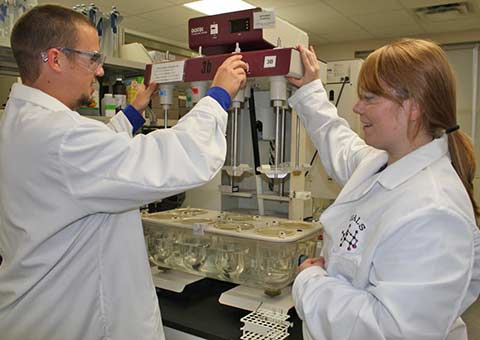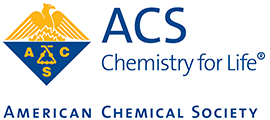Why choose Biochemistry & Molecular Biology?
Our Biochemistry and Molecular Biology degree is a combined degree offered through the Chemistry and Biology departments. This program prepares students for careers in the dynamic life science industry. It is also ideal for students who plan to pursue advanced degrees in graduate, medical, dental or pharmacy schools.
ACS Certification in Biochemistry
Our American Chemical Society approved option is the most comprehensive program available. If you are working toward an advanced degree in chemistry, biochemistry or planning a career in the chemical industry, Missouri Western’s ACS track in Biochemistry and Molecular Biology is strongly recommended.
OUR GRADUATES
CONTINUE THEIR EDUCATIONGraduates often go on to attain one of our masters degrees in chemistry or industrial life science. Others can be found in Ph.D. programs at the University of Iowa, the University of Kansas, the University of Illinois, Baylor College of Medicine and more.
OUR GRADUATES
ENTER THE WORKFORCEMissouri Western graduates can be found working in the laboratories of many regional life science employers in the Kansas City and St. Joseph area including Bayer, Boehringer Ingelheim, Midwest Research Institute and the Environmental Protection Agency.

Mapping your degree plan is important. Consult with your academic advisor to create a plan and monitor it regularly.

